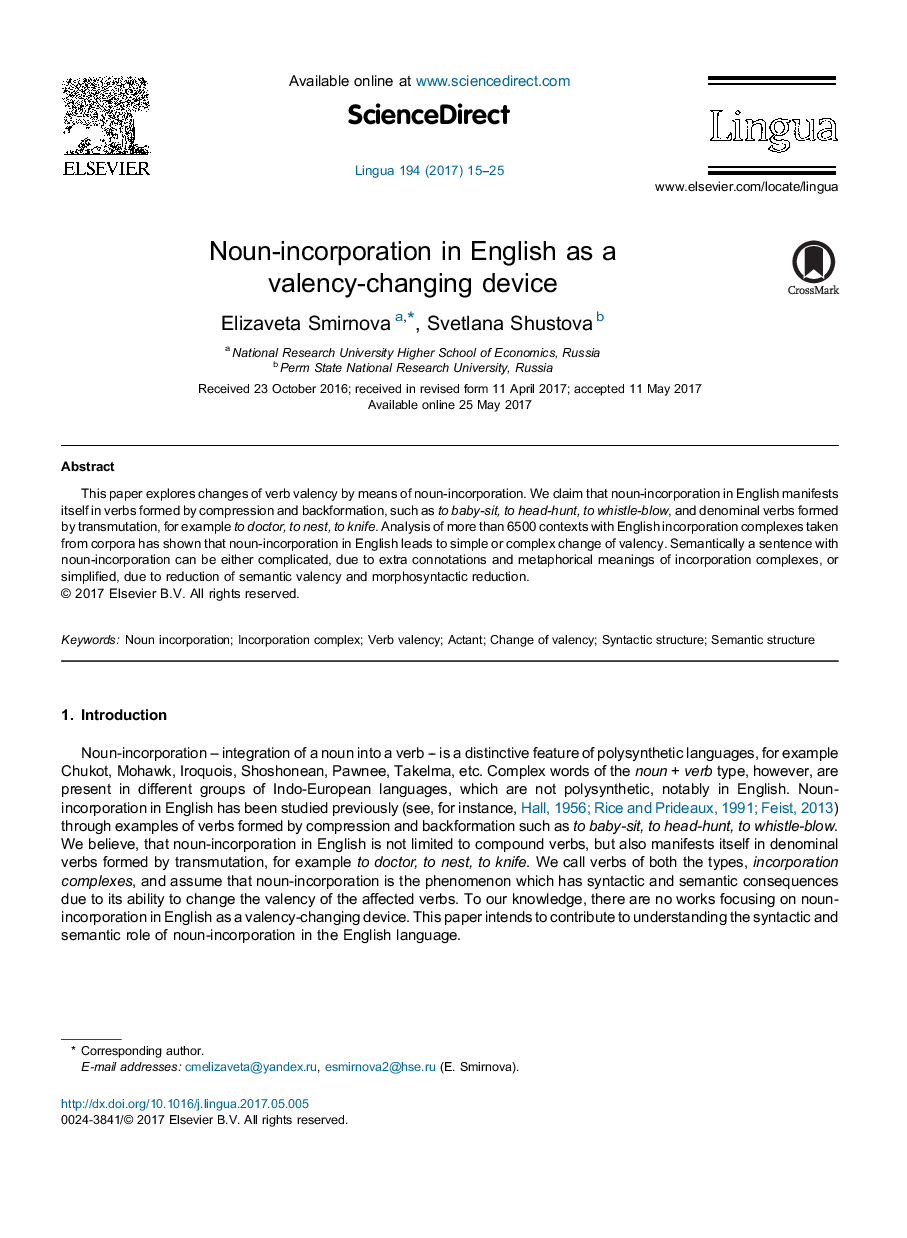| Article ID | Journal | Published Year | Pages | File Type |
|---|---|---|---|---|
| 5042979 | Lingua | 2017 | 11 Pages |
â¢Noun incorporation in English has syntactic and semantic consequences.â¢Classification of incorporation complexes by incorporated actant type is proposed.â¢Noun-incorporation causes two types of valency change: simple and complex.â¢Sentence semantics under noun-incorporation is either complicated or simplified.
This paper explores changes of verb valency by means of noun-incorporation. We claim that noun-incorporation in English manifests itself in verbs formed by compression and backformation, such as to baby-sit, to head-hunt, to whistle-blow, and denominal verbs formed by transmutation, for example to doctor, to nest, to knife. Analysis of more than 6500 contexts with English incorporation complexes taken from corpora has shown that noun-incorporation in English leads to simple or complex change of valency. Semantically a sentence with noun-incorporation can be either complicated, due to extra connotations and metaphorical meanings of incorporation complexes, or simplified, due to reduction of semantic valency and morphosyntactic reduction.
